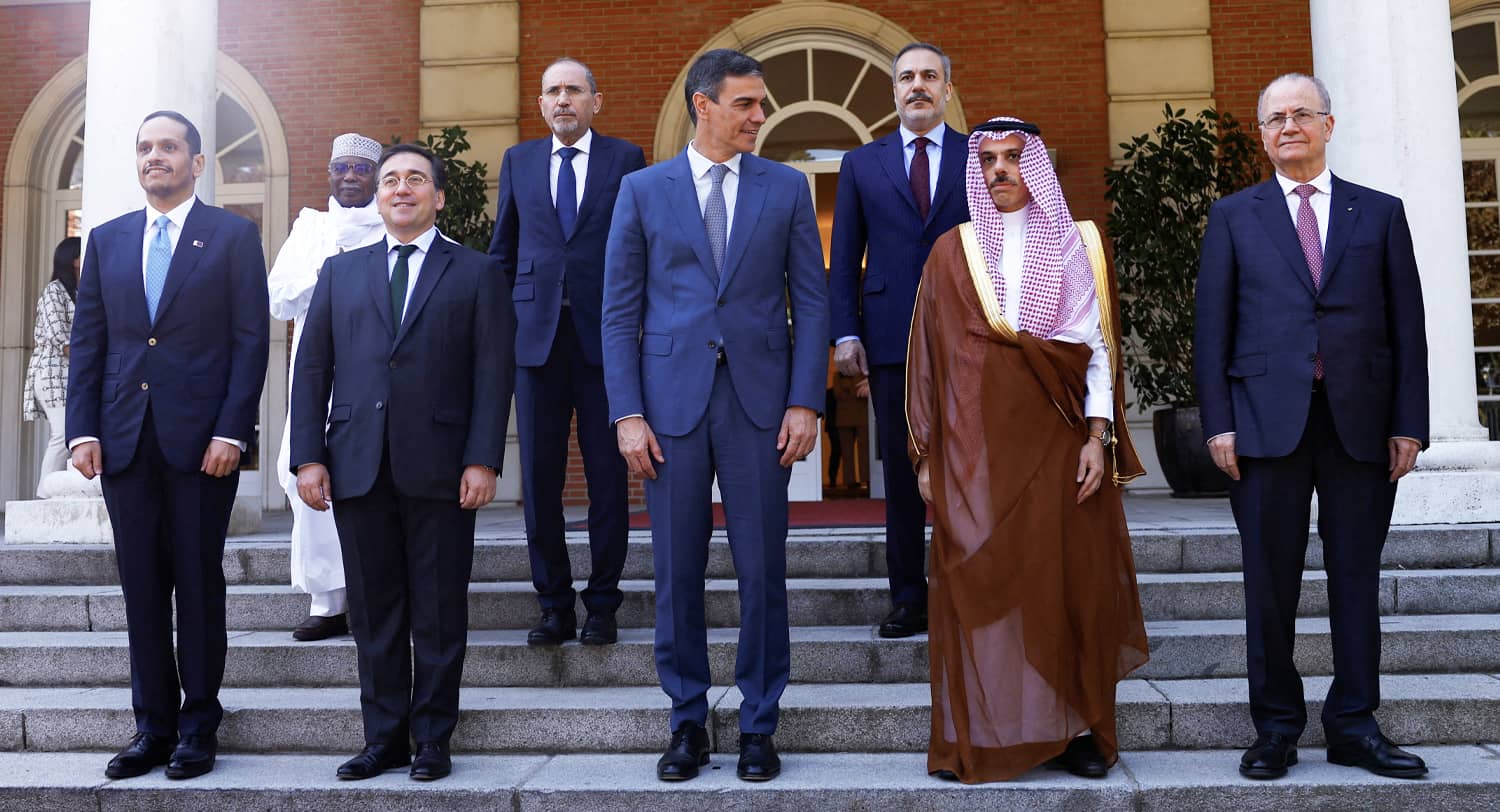During the Middle Ages, Jews were persecuted and expelled, repeatedly at times, from every European country – but the one the world remembers most is the expulsion from Spain in 1492 of what had been the world’s largest Jewish community.
This ancient wound was very much in the foreground when on May 28, 2024 Spanish Prime Minister Pedro Sanchez recognized a Palestinian state, at the same time as Ireland and Norway. Sanchez also proceeded to delineate Palestine’s future borders – a capital in East Jerusalem, the West Bank, Gaza, with a corridor running through Israel connecting those two parts.
Israel condemned the decision, with Foreign Minister Israel Katz specifically referring to the Spanish Inquisition. He also posted an 18-second video titled “Hamas: Thank You Spain” (Hamás: Gracias España) featuring the Spanish flag and flamenco dancing interposed with footage of the Hamas attack of October 7. This infuriated Spanish authorities, although in fact Hamas and Hizbullah, and even the Taliban, did indeed thank the three EU states for their decision.
Today’s Spain
Sanchez’s government is the most left-wing in Europe and the only one with hardline communists in the cabinet. Ironically, given the Israeli link of this government to the Inquisition, these officials are frequent, bitter critics of almost everything related to Spain’s Catholic and Imperial past. Running for office, Sanchez promised to never form a coalition with the far-left but then proceeded to do so in 2018 to gain power. He also promised never to form a pact with Basque and Catalan separatist parties, but after coming in second in July 2023 general elections he needed their votes to fashion his current thin majority.
Spain is facing a deep domestic crisis. On May 30, the coalition government pushed through an amnesty law for Catalan separatists who carried out an illegal secessionist referendum in October 2017, part of the price paid by Sanchez to Catalan separatist parties.
Sanchez’s Socialist Party and the rival communist Podemos and Sumar parties all enjoy intimate relationships with the Latin American left, particularly with the Venezuelan and Cuban regimes that are closely allied with Iran, Hezbollah and Assad’s Syria. While Sanchez represents the most moderate element in the ruling leftist coalition, he has steadily moved his party to the left, in comparison with the party of Felipe Gonzalez, Spain’s first Socialist prime minister (1982-1996) of the modern era.
Sanchez’s far-left allies would like to see much more, to include breaking off relations with Israel and joining with South Africa against Israel at the ICC. Whatever becomes the latest, fashionable step to take against the Jewish state, they’re for it.
The anti-Israel rhetoric of this Spanish government dates back to late 2023, not long after the Hamas invasion of Israel. In 2023, the Second Deputy Prime Minister Yolanda Diaz (leader of the communist Sumar party), followed by former Equality Minister Irene Montero (whose Podemos communist party supports the ruling coalition while no longer being a part of it) and finally then Defense Minister Margarita Robles of the Socialist Party – all accused the Israeli government of genocide.
Spain’s Foreign Policy and the World
Spain’s socialist left and far-left (Sumar/Podemos and the left-leaning Catalan and Basque parties), while they agree on anti-Israel policies, don’t agree completely on other foreign policy issues. In 2022, Sanchez “switched sides” and supported Morocco on the issue of the former Spanish colony of Western Sahara. Changing 46 years of Spanish policy, he essentially recognized Morocco’s dominion of the territory. Sanchez’s far-left allies disagree and tend to support the Polisario Front rebel movement.
Since Spain is a NATO member and Sanchez is rumored to have ambitions of being NATO Secretary General one day after his time in Madrid comes to an end, the country is a conventional supporter of Ukraine in that conflict. This is another difference between Sanchez and his far-left allies who generally want a ceasefire in Ukraine and range from skeptical to hostile when it comes to NATO.
Spain’s future foreign policy is difficult to predict. The smart money in Madrid is betting the current coalition is too unstable to last and will break apart later this year, probably because the Catalan and Basque parties want even more than Sanchez can give them. National elections in late 2024 or early 2025 could see the right return to power for the first time in over six years.
But the Spanish right is also divided. The conservative Vox party strongly supports Israel and is the country’s third largest party. However, the country’s largest party, the center-right Partido Popular (PP), is having an identity crisis, similar to those experienced by Britain’s Tories or Germany’s Christian Democrats, about what exactly they stand for. The PP spent much of the 2023 election cycle attacking Vox, their potential allies on the right, while soft-peddling their criticism of the Socialists; some observers think it cost them the election.
Spain’s current government may represent a harbinger of leftwing influences on other countries’ Middle East policies. Its policy on Israel is, among other things, a supposedly cost-free way to appease far-left allies. In the United Kingdom we are beginning to see the rise of domestic Islamist electoral politics that will sooner or later influence the Labour Party. In the United States, we see a rise in the influence of an anti-Israel left wing of the Democratic Party.
Both in Europe and America, therefore, we should expect parties of the left to include in their coalitions far-left and Islamist groups that are anti-Israel and often openly antisemitic. While the populist right in Europe and America is generally, often strongly, pro-Israel, they tend to lack the single-minded passions of the far-left. Pandering on Palestine is bound to be, more and more, an essential part of leftist politics in the West in the years to come.

